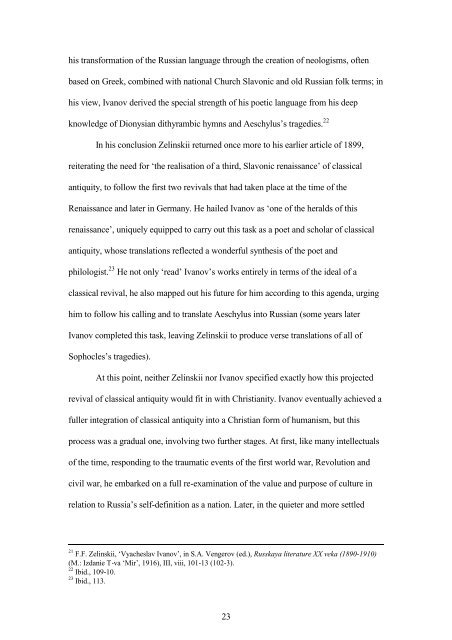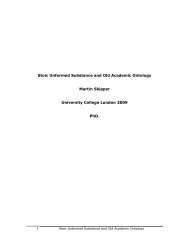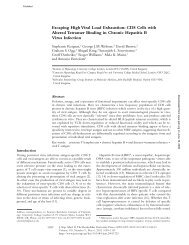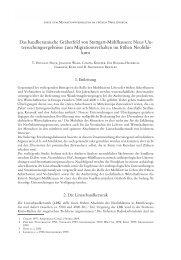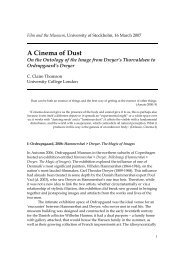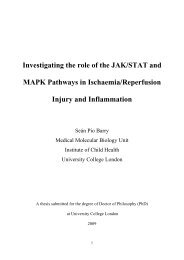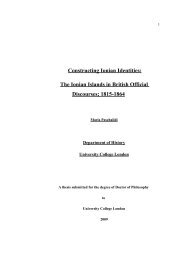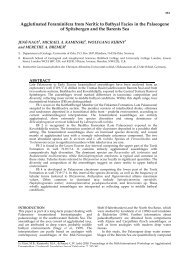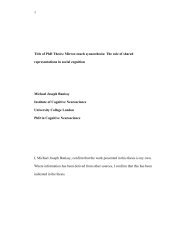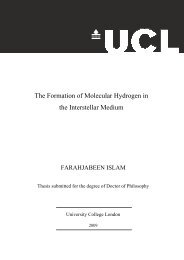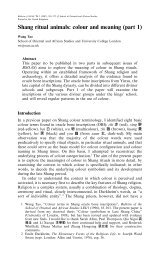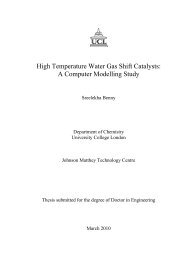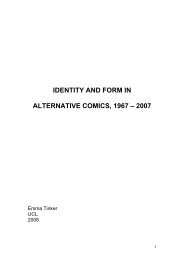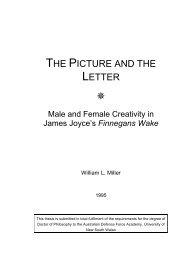Vyacheslav Ivanov and C.M. Bowra: a ... - UCL Discovery
Vyacheslav Ivanov and C.M. Bowra: a ... - UCL Discovery
Vyacheslav Ivanov and C.M. Bowra: a ... - UCL Discovery
You also want an ePaper? Increase the reach of your titles
YUMPU automatically turns print PDFs into web optimized ePapers that Google loves.
his transformation of the Russian language through the creation of neologisms, often<br />
based on Greek, combined with national Church Slavonic <strong>and</strong> old Russian folk terms; in<br />
his view, <strong>Ivanov</strong> derived the special strength of his poetic language from his deep<br />
knowledge of Dionysian dithyrambic hymns <strong>and</strong> Aeschylus’s tragedies. 22<br />
In his conclusion Zelinskii returned once more to his earlier article of 1899,<br />
reiterating the need for ‘the realisation of a third, Slavonic renaissance’ of classical<br />
antiquity, to follow the first two revivals that had taken place at the time of the<br />
Renaissance <strong>and</strong> later in Germany. He hailed <strong>Ivanov</strong> as ‘one of the heralds of this<br />
renaissance’, uniquely equipped to carry out this task as a poet <strong>and</strong> scholar of classical<br />
antiquity, whose translations reflected a wonderful synthesis of the poet <strong>and</strong><br />
philologist. 23 He not only ‘read’ <strong>Ivanov</strong>’s works entirely in terms of the ideal of a<br />
classical revival, he also mapped out his future for him according to this agenda, urging<br />
him to follow his calling <strong>and</strong> to translate Aeschylus into Russian (some years later<br />
<strong>Ivanov</strong> completed this task, leaving Zelinskii to produce verse translations of all of<br />
Sophocles’s tragedies).<br />
At this point, neither Zelinskii nor <strong>Ivanov</strong> specified exactly how this projected<br />
revival of classical antiquity would fit in with Christianity. <strong>Ivanov</strong> eventually achieved a<br />
fuller integration of classical antiquity into a Christian form of humanism, but this<br />
process was a gradual one, involving two further stages. At first, like many intellectuals<br />
of the time, responding to the traumatic events of the first world war, Revolution <strong>and</strong><br />
civil war, he embarked on a full re-examination of the value <strong>and</strong> purpose of culture in<br />
relation to Russia’s self-definition as a nation. Later, in the quieter <strong>and</strong> more settled<br />
21 F.F. Zelinskii, ‘<strong>Vyacheslav</strong> <strong>Ivanov</strong>’, in S.A. Vengerov (ed.), Russkaya literature XX veka (1890-1910)<br />
(M.: Izdanie T-va ‘Mir’, 1916), III, viii, 101-13 (102-3).<br />
22 Ibid., 109-10.<br />
23 Ibid., 113.<br />
23


